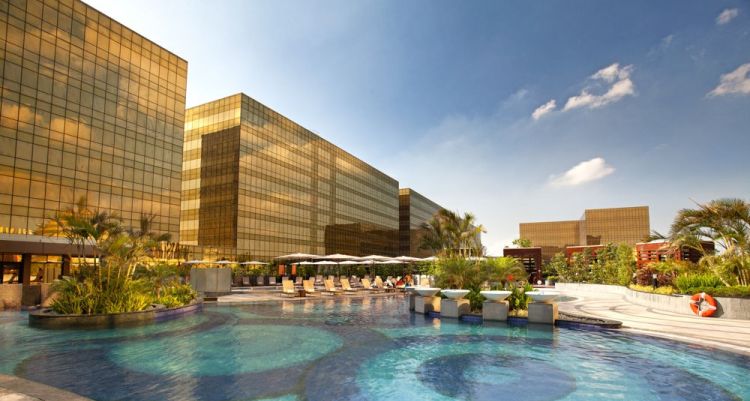The end result of president Duterte’s crackdown on gambling in the country might not be a concern for the integrated resort casinos in Manila and Entertainment City. A recent report in GGRAsia quotes CLSA Ltd brokerage analyst Marcus Liu as stating, “While there will be overhangs from these issues for some time, we think that much of this has been overdone,” the outlet quotes Mr Liu’s note as saying. “[This] clampdown on e-gaming doesn’t mean the same thing will happen to the integrated resorts,” the analyst proffered.
He went on to explain, “President Duterte’s actions stem from his concern for the lower-income Filipinos and the social impact that that carries. We do not think that this will have an impact on the integrated resorts, which target the foreign market and generally price out the lower-income Filipinos.”
President Rodrigo “Rody” Roa Duterte, also known by the nickname Digong, and sometimes as “The Punisher” wasted no time in making his displeasure for certain forms of gambling in the Philippines known, injecting a pledge to “destroy” online gambling in his first address to the nation after taking office earlier this summer.
He quickly followed through with his plans to “Destroy the oligarchs that are embedded in government now,” by instructing recently appointed head of the country’s for-profit gambling regulator cum casino owner/operator, Pagcor, to not renew the licenses of over 100 internet cafes serving up sports betting and a version of America’s favorite RealTime Gaming (RTG) video slots.
The “oligarch” to take the first hit was Philweb Corp’s Roberto Ongpin who may have to idle as many as 6,000 workers and shut down about 300 businesses in the country. Ongpin argued, “PhilWeb is merely a software provider to Pagcor for its network of e-Games outlets,” he said. “We are not online gaming. Our software cannot be played from homes or offices,” to no avail. He then offered to auction off all his shares in the company, and when that didn’t sway his assailant, he offered to donate 49% of his stake to the government in order to fund drug rehab facilities.
Another operator, William Gatchalian who conducts electronic gaming operations at the University Park Mall Building in Santa Cruz, Manila, and whose license expired about the same time as Ongpin’s, had his certification renewed on a month to month basis until the end of the year. Gatchalian, whose son was recently elected to Senate office, reportedly has even bigger slot operations in Cebu and Mactan cities, according to InterAksyon.com.
Of course about 100 real online gambling licenses have already been issued in the Cagayan Special Economic Zone and Freeport (CEZA) via the Interactive Gambling Act of 2003 – with none of the online casinos serving Filipinos. CEZA in the northern part of the country is basically the online gambling hub of Asia. It was recently joined by the launch of the Aurora jurisdiction who have also issued licenses according to inside media reports.
Pagcor has recently announced that it intends to get into the online gambling licencing business, while the Philippine Department of Finance wants Pagcor out of the business of owning and reaping profits from more than 45 casinos in the country. Casinos that take the same pesos from locals that Ongpin’s internet cafes did.
Finance Secretary Carlos Dominguez has said the government needs to distance itself from commercial interests, especially those it oversees in a regulatory capacity. According to Bloomberg report, Kim Eng, an analyst at Maybank ATR stated that, “The government will get the highest value if these casino are sold as one rather than if the assets are sold separately. Bundled as one, these casinos will give buyers a massive advantage.”
It’s unclear how a change in ownership of nearly 50 casinos in the country would remedy, “the social ills and decay they foist on our communities as they cater to the more economically vulnerable portion of our population,” as Pagcor Chair Andrea Domingo stated when giving reason for destroying the PhilWeb operations.



